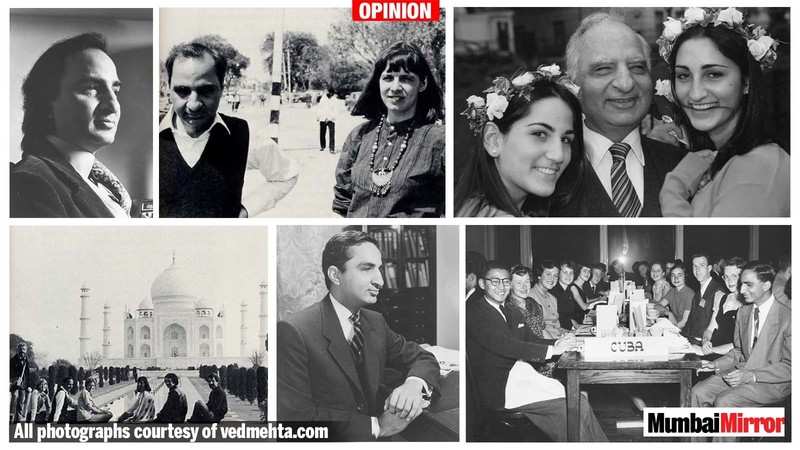What Ved Mehta’s writings say about India

- Aditya Mani Jha
- Updated: Jan 13, 2021, 15:58 IST IST
The good, bad and ugly of the famous Indian-American author who used to write for the New Yorker
During the late 1960s, The New Yorker staff writer Ved Mehta (who died earlier this week at 86) began writing what would become the essay collection Portrait of India (1970). This was still a few years away from the beginning of Continents in Exile, the 12-volume memoir that has made him almost synonymous with the form among Anglophone Indian writers. Call it foreshadowing if you will, but Portrait of India begins with a jovial Sikh gentleman conducting a guided tour of New Delhi — the man announces that he will begin with “a tour of myself” and proceeds to rattle off his family history. Was this a bit of a Eureka moment for Mehta, who would soon begin a massively ambitious autobiographical project? Difficult to say, but surely it’s not implausible that the storyteller in Mehta sensed the tour guide’s point; that the stories we tell have a funny way of circling back to ourselves.
Throughout his career, Mehta kept writing about India and Indians. Portrait of India was followed up by Mahatma Gandhi and his Apostles (1976), New India (1978) and A Family Affair: India Under Three Prime Ministers (1982). In these books we meet ordinary citizens from all walks of life: a police officer in Ludhiana, a tribal chieftain in Nagaland, a loquacious Darjeeling bureaucrat with strong views on India’s China policy. We also meet some of the most prominent Indians of the 1970s and the 1980s — Jayaprakash Narayan, Satyajit Ray, Begum Akhtar and so on.
Throughout his career, Mehta kept writing about India and Indians. Portrait of India was followed up by Mahatma Gandhi and his Apostles (1976), New India (1978) and A Family Affair: India Under Three Prime Ministers (1982). In these books we meet ordinary citizens from all walks of life: a police officer in Ludhiana, a tribal chieftain in Nagaland, a loquacious Darjeeling bureaucrat with strong views on India’s China policy. We also meet some of the most prominent Indians of the 1970s and the 1980s — Jayaprakash Narayan, Satyajit Ray, Begum Akhtar and so on.
